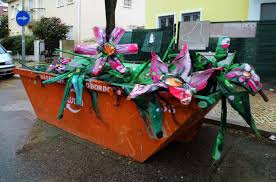What to do with it all? Climb up from my basement dungeon studio… stacking and organizing and picking out what to paint over, what to trash.
So much stuff.
Think I’m gonna start taking pieces to A-Space and leaving them in the take-it-free-or trash-it corner. A lot of early assemblages–a few have held up, but they were all experiments (big grown-up word for ‘play’); making them was fun and gave me courage to go on to do other things–but I have to do something with the clutter. The nicer pieces get coated with cement dust from the walls.
Really depressing.
This weekend. Take maybe a dozen or so pieces to A-Space. They’re all at least interesting, in a conceptual sort of way. Compositions of street debris: old can lids, stucco flakes, roofing tar, nails, cigarette butts… dirt. Glued, nailed, tied with string to trashed pieces of weathered plywood or composition board. Capitalism in decay.
What ever possessed me?
I’ve got the larger pieces and paintings stacked face to the wall. Keep them a little cleaner. Some nice pieces. Come see them. Make me an offer and they’re yours.









